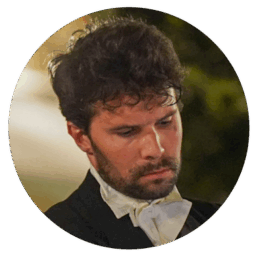CONCERTS 2026 | JOY – Sunday with Beethoven
BENEDIKT SAUER
BEETHOVEN Egmont: Overture in F minor op. 84
BEETHOVEN Die Ruinen von Athen (The Ruins of Athens): Overture op. 113
BEETHOVEN Die Weihe des Hauses (The Consecration of the House) op. 124
BEETHOVEN Symphony No. 8 in F major op. 93
13 December | H 11:00Manzoni Auditorium
Director
Benedikt Sauer
Program
Ludwig van Beethoven
Egmont: Overture in F minor op. 84
The overture, among the most famous of the 19th century, is almost always a stand-alone concert piece. But in fact “Egmont” is also a stage music followed by nine independent pieces for solo voice, reciting voice and orchestra, also appreciated by Hoffmann and Goethe. The subject of this work dated 1810 is the heroic end of the Count of Egmont, who sacrificed his life to show his attachment to his Dutch homeland during the repression carried out by the ruthless Duke of Alba in 1568 on behalf of Spain’s King Philip II. The overture condenses his tragic parable into one of the most dramatic and intense pages in Beethoven’s entire output.
Die Ruinen von Athen (The Ruins of Athens): Overture op. 113
To strengthen acceptance among Hungarians, in 1805 Francis I of Austria planned to build a large theater, complete with casino and ballrooms. A celebratory play, related to Hungarian history and favorable to the Habsburg dynasty, was planned for the opening. The text was commissioned from Anton von Kotzebue, an expert in allegorical works, while the music was entrusted to Beethoven. Kotzebue wrote three separate acts, but only the first, King Stephen, and the last, The Ruins of Athens, won censorship approval. Beethoven completed the music in only three weeks. In The
Die Weihe des Houses (The Consecration of the House) op. 124
In the same creative fury that led to the heights of the Ninth Symphony and the Missa Solemnis, the Overture “The Consecration of the House” was born, an occasion piece written for an important occasion: the “house,” in fact, was actually the Theater in der Josefstadt in Vienna, inaugurated in 1788 and recently restored. Beethoven brilliantly fulfilled this commission in a matter of days, and the Overture’s fortunes soared beyond its first performance in 1822, becoming an ideal piece to mark inaugurations, reopenings or new theater courses. “The Consecration of the House” was also on the program for the historic concert on May 7, 1824, when the premiere of the Ninth Symphony was given at the Porta Carinthia Theater in Vienna, which saw Beethoven appear on stage after a twelve-year absence.
Symphony No. 8 in F major or p. 93
Beethoven began the composition of theEighth in 1811 and completed it in the summer of 1812, during a period spent in some spa resorts, where he also met Goethe. The symphony, the shortest of the nine, was performed in 1814 in Vienna, in an all-Beethovenian concert sponsored by Johann Nepomuk Maelzel, the inventor of the metronome. From the opening, theOctave conveys a feeling of intense vitality, with a bright energy that even becomes playful and ironic in the second movement. The Minuet distances itself from the typical lightness of the 18th century, revealing an expressive depth that anticipates certain Brahmsian atmospheres. In the concluding Allegro, with its overwhelming rhythm, a carefree euphoria is again released, though a more reflective vein is allowed to surface here and there.
Orchestra of the Teatro Comunale di Bologna
Before each concert, listening keys by
Martino Ruggero Dondi
A Milanese musician and philosopher, with a diploma in piano and a degree in philosophy with honors, he works as a collaborating maestro, choral and orchestral conductor at important opera houses. In parallel, he devotes himself to musical and cultural popularization, collaborating with Italian and international theaters and festivals.
Full: 10€
Symphony Subscribers: 8€
U30 5€
U18: 1€
This post is also available in: Italiano (Italian)




